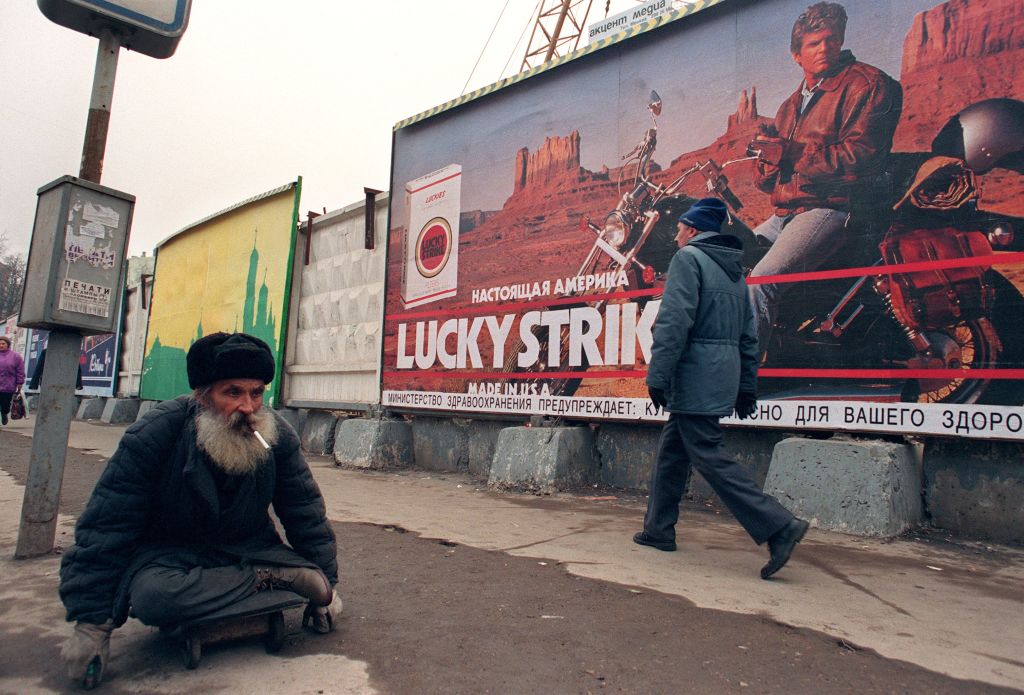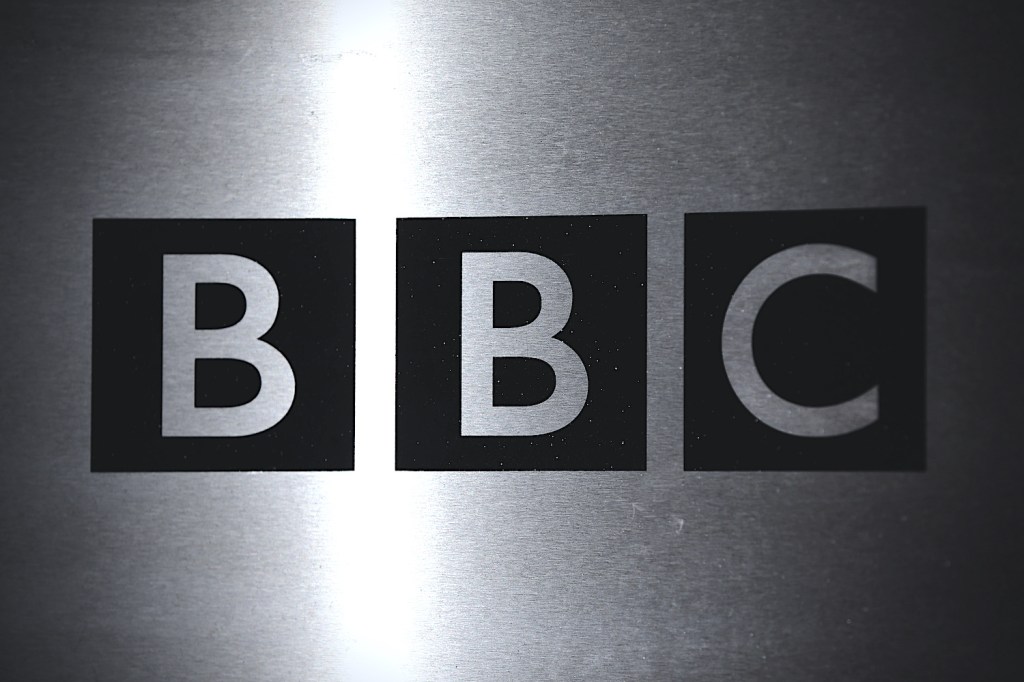A revealing, damning and fascinating diplomatic memorandum, sent in 1994 from the US embassy in Moscow to the State Department in Washington, D.C. has recently been declassified. It is also a gripping and lacerating read, even for the non-specialist. It comes at time of heightened tension and ongoing head-scratching: why are US-Russia relations so terminally bad?
No single topic, let alone a single memo, will unlock the enduring complexity of what is broadly called East-West relations. But at least one strong voice inside the US embassy was warning that the US-Russia relationship was off to a dreadful start.
‘We have reached a point where it is arguable that the best service our aid program could now serve would be to permit Boris Yeltsin publicly to tell America to take its money and shove it,’ wrote Wayne Merry, who in 1994 worked on Russia domestic politics in the US Embassy in Moscow.
Early US policy toward the new Russian Federation insisted on supporting pro-democracy, political reform and transformational economic reform. The idea was to ensure that Russia, a major nuclear power and the Soviet Union’s largest successor state, was firmly on its way to becoming a liberal democracy with a market economy. In other words, a younger, perhaps slightly more hormonal, version of the United States.
This dual emphasis on building robust civil institutions and an economy free from political interference sprang from the unbending belief in the US policy community that democracy and the market were inseparable, fraternal twins. The ideological accelerant sprinkled on top was that the US had won the Cold War, so it was time for Russia to throw in the towel and join the cool kids over in the capitalist world.
Merry’s career was permanently damaged by the candour of his 1994 telex
The problem, Merry writes, was a complete failure to grasp what was happening on the ground in the world’s largest country. Most of Russia, Merry wrote, was ready for and increasingly equipped for democratic reform. Parliamentary elections in 1993 that went against Yeltsin devastated his political standing, but Russia remained relatively receptive ground for political change.
It was, however, utterly unprepared for the kind of radical economic reform foisted on it by US government and academic advisors. The Soviet Union never really had an economy at all; goods and services were produced and allocated exclusively according to the political priorities of the notorious Five-Year Plans. And even that ossified system was on its knees at the time of the Soviet collapse. Hauling Russia wholesale toward a market economy was like pinning an orange to an apple tree and praying it takes root. What’s worse, the Soviet collapse and the economic ‘shock therapy’ prescribed by US advisors impoverished almost the entire nation. Russia’s first impression of what capitalism meant could not have been worse.
Not only did we send the wrong kind of aid, Merry wrote, but we sent the wrong kind of people.
‘Sadly, very few of the multitudes of American “advisors” in Russia since the Bolshevik demise acquainted themselves with even the most basic facts of the country whose destiny they proposed to shape,’ Merry wrote. Russia and Russians, he said, were growing tired of the ‘assistance tourists’ who treated their country as a ‘social-economic laboratory to test academic theories.’
Merry has a point. Moscow in the 1990s was teeming with American accountants, lawyers and management consultants – you bumped into them in restaurants, at parties, in hotel lobbies and in offices – most if not all of them sponsored by US tax dollars. Few of them spoke Russian. The US poured billions of dollars of aid into Russia. In the end, little of it actually went to Russia, and instead enriched the accountancies, law firms and management consulting firms.
In a personal memo accompanying the release of the once-classified telex, Merry called US assistance on rigid market reform ‘trying to ram a foreign square peg into a Russian round hole.’
Outside the world of diplomacy, Merry in the telex wrote that American businessmen were ‘the most effective presence our country has in Russia.’ That’s painting with a broad brush, but points to the enormous role the private sector (and not just from the US) was playing in the Russian economy.
In the eyes of commercial investors, 1990s Russia was more than an emerging democracy; it was an emerging market, and an attractive one at that. Post-Soviet Russia was born during a period of rapid globalisation – when companies started doing business in countries once deemed too risky to touch. Business-class cabins on flights to Moscow from London, Paris and Frankfurt were packed to capacity. (Americans usually came on the BA service, until US airlines started offering non-stop service to Russia much later.)
Internal politics in Russia, too, were not confined to a Kremlin bubble inhabited solely by Yeltsin. Russia’s affable, rotund and sometimes-publicly-tipsy president was surrounded by Russians who wanted to do biznes. Some of them were anti-economic reform – they were skilled at fleecing the Soviet system and would have been happy to carry on fleecing an unreformed post-Soviet system. Others, however, understood that Russian access to western markets on equal terms could unlock biblical amounts of wealth. Early Russia was, after all, creating an early Russian ‘1 per cent’ – its very own economic elite. These individuals may not have had the skill set to build a genuine market economy in Russia. But they liked the look of capitalism, and wanted some for themselves. These people held significant sway in Yeltsin’s entourage.
Why does all this matter now, and why indeed are relations with Russia at a historical nadir? Did we ‘lose’ Russia? That’s a fairly hubristic point of view – Russia was never ‘ours’ to lose. Beyond that, though, did we push it away from the very beginning? Sometimes the West drew Russia closer (Russia joined the G7 and made it the G8, don’t forget) and sometimes the West pushed it away. The West didn’t ‘cause’ Putinism or conjure him forth. He was anti-western long before he ever came close to power. Russia’s early experiences with a market economy – all experiments designed and promoted by the US – were traumatic and scarring. But a small middle class ultimately emerged in Russia; the country slowly joined the global economic ecosystem.
Merry is not the first diplomat from Moscow to send a sensational telex home. His memo invites comparison with the so-called ‘Long Telegram,’ a 1946 communique from George Kennan that helped inform Washington’s Soviet containment strategy.
Merry’s career was permanently damaged by the candour of his 1994 telex. It was blocked from conventional transmission and submitted to his colleagues in the State via the Dissent Channel. A terse, official response to Merry’s memo came late and Merry wasn’t allowed to read it until it, too, was de-classified.
Merry’s criticisms of the nuts-and-bolts of US political and economic engagement with Russia are important. They’re specific, nuanced and based on first-hand knowledge. But his most damning criticism – a comment much more sweeping in scope than his comment on US Russia policy – comes in his personal essay.
‘In my experience, Washington seeks to understand other countries by looking in the mirror (a common human failing),’ Merry writes. Merry comes across as a careful writer; here he is notably using the present tense. He has a point. Not too long ago, the US believed that China too – with enough time, enough money and a big enough middle class – would begin to remake itself in the image of the United States. We should be grateful Merry’s memo has been made public. It is most important for helping us avoid looking in the mirror and making the same mistake over and over again.







Comments